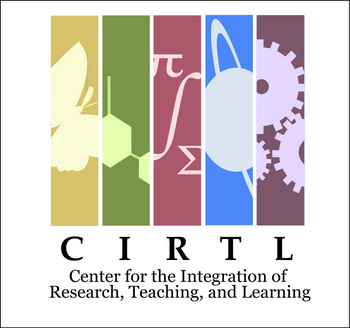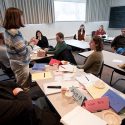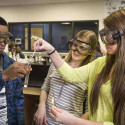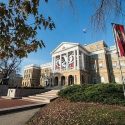Unique MOOC with in-person sessions offered for future and current college STEM faculty
A new MOOC (Massive Open Online Course) offering an in-person twist — local weekly facilitated meetings — debuts next week to help future and current college STEM (science, technology, engineering and math) faculty become better teachers. It is designed to be of special interest to grad students planning to teach professionally.
“An Introduction to Evidence-Based Undergraduate STEM Teaching” is open to any educator or future educator eager to become a better-informed and more confident teacher. Registration runs through Oct. 6, the start of the seven-week class.

The MOOC and newly-dubbed MOOC Supported Learning Communities (MSLCs) are offered at no cost to those interested in participating. Both were developed with National Science Foundation funding by the Center for the Integration of Research, Teaching and Learning (CIRTL), a project of the Wisconsin Center for Education Research (WCER) within UW-Madison’s School of Education.
“Participants in the course will learn evidence-based effective teaching strategies, course planning and design, and techniques for creating inclusive learning environments,” said WCER Interim Director Robert Mathieu, also director of CIRTL and a UW–Madison astronomy professor.
“Future STEM faculty aren’t always provided with training for their roles as teachers. One of the goals of this MOOC is to take what’s been learned about future faculty preparation at the CIRTL Network institutions and leverage that experience so that far greater numbers of graduate students become effective teachers,” Mathieu said.
Though enrollment is unrestricted and open to help anybody who teaches or is interested in teaching STEM subjects, the MOOC especially is geared toward graduate students and post-doctoral fellows who are planning to teach professionally. The class requires about 9 hours of coursework per week. Students who score 80% or higher on weekly quizzes will receive a Statement of Accomplishment.
Though enrollment is unrestricted and open to help anybody who teaches or is interested in teaching STEM subjects, the MOOC especially is geared toward graduate students and post-doctoral fellows who are planning to teach professionally.
The UW-Madison Delta Program, the prototype CIRTL learning community, is organizing the local MSLCs and is seeking facilitators. CIRTL is coordinating the discussion and study groups for class participants in the local campus communities of the other 21 other members of the CIRTL Network. Kitch Barnicle, CIRTL’s project manager, said she expects more MSLCs will crop up on their own in additional locations around the country and the world.
“We have faculty across the CIRTL Network devoted to teaching and learning who will nurture these learning communities,” she said. “We’re hoping the online course will allow students to engage with people from around the world, while the local groups connect them to classmates from their own campus.”
Featuring instructors from many universities in the CIRTL Network, the MOOC is hosted by the Delta Program’s co-faculty director Trina McMahon, a professor of civil and environmental engineering and bacteriology at UW–Madison, and Derek Bruff, director of the Vanderbilt University Center for Teaching and a senior lecturer in mathematics.
—Janet Kelly



